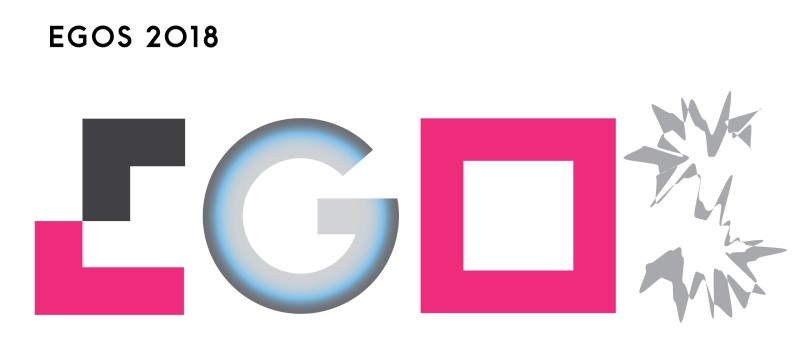Sub-theme 47: Social-Symbolic Work and the Unexpected in Organizational Life
Call for Papers
Our aim in this sub-theme is to explore the complex relationship between social-symbolic work and the unexpected in organizational
life. Social-symbolic work represents the reflexive, purposive, skillful actions of individuals and groups intended to shape
or maintain the social-symbolic facets of organizational life (Phillips & Lawrence, 2012). It can involve efforts to shape
broad institutional structures, including categories and practices (Khaire & Wadhwani, 2010; Zietsma & Lawrence, 2010),
social-symbolic features of organizations such as strategies and boundaries (Drori, Wrzesniewski, & Ellis, 2013; Whittington,
2006), or the self, including identity and emotions (Brown & Toyoki, 2013; Creary et al., 2015; Zapf, 2002).
The concept of social-symbolic work is tied tightly and in numerous ways to the unexpected in organizational life. First,
a critical feature of social-symbolic work is the unexpected consequences that invariably accompany it. Although social-symbolic
work is defined by its intentions – shaping social-symbolic objects – its status as social-symbolic work does not depend on
achieving these aims. The complex combination of intentions, situations, tools and skills, and creativity and routines creates
a great deal of uncertainty in the causal paths through which actors work to shape social-symbolic objects. Second, social-symbolic
work itself often represents an unexpected dimension of organizational life – the ability to shape social-symbolic objects.
A common thread across forms of social-symbolic work is that it highlights the role of actors in socially constructing elements
of work and organizations previously understood as either “natural” or beyond the control of individual actors. Third, social-symbolic
work is often motivated by negative unexpected events in the external environment. Specifically, these events can lead individuals
and groups to engage in social-symbolic work to shape the social-symbolic dimensions of their own selves and those of others,
organizations, and institutions.
In keeping with the Colloquium theme of “Surprise in and around Organizations:
Journeys to the Unexpected”, we are interested in exploring how social-symbolic work is involved in producing and responding
to the unexpected in organizational life.
The concept of “social-symbolic work” is an umbrella term that
includes institutional work, organization work and self work (Phillips & Lawrence, 2012), and thus we are interested in
all of these kinds of work and their connection to the unexpected in organizational life. We are especially interested, though,
in research that focuses on one or more of the following topics:
(1) Research that examines
how social-symbolic work involved in producing or responding to the unexpected in organizational life affects individuals
and society including:
How does work on organizational identities affect the social identities of individuals?
How does work on organizational boundaries affect broader social arrangements?
How does work on organizational practices affect broader societal activities?
(2) Research on the unintended
consequences of social symbolic work in organizations. Topics might include:
How and when does social-symbolic work in organizations have unintended consequences within the organization?
How and when does social-symbolic work within the organization have unintended consequences in society more broadly?
How and when does social-symbolic work within the organization have unintended consequences on individuals?
(3)
Research that focuses on the skills, resources, and identities are required to succeed in the performance of social-symbolic
work within organizations. Topics might include:
What kinds of skills are required for actors to succeed at social-symbolic work? How can these skills be learned? Can they be taught? If they can be taught, by whom?
What kinds of resources underpin successful social-symbolic work? How are they marshaled? Where do actors find them?
What identities allow actors to legitimately engage in social-symbolic work? What identities are expressly excluded from this activity?
We recognize that there may be few existing studies that are explicitly focused on these relationships, especially in connection
to the unexpected in organizational life, and so we encourage submissions that only partly address the questions and issues
we are raising in this call, with the understanding that selected presenters will be expected to revise their presentations
to more closely connect with the focus of the sub-theme and the Colloquium. Finally, while we welcome theoretical explorations
of social-symbolic work, we want to especially encourage empirical investigations that connect social-symbolic work to the
unexpected in organizational life.
References
- Brown, A.D., & Toyoki, S. (2013): “Identity work and legitimacy.” Organization Studies, 34 (7), 875–896.
- Creary, S., Caza, B., & Roberts, L. (2015): “Out of the box? How managing a subordinate’s multiple identities affects the quality of a manager-subordinate relationship.” Academy of Management Review, 40 (4), 538–562.
- Drori, I., Wrzesniewski, A., & Ellis, S. (2013): “One out of many? Boundary negotiation and identity formation in postmerger integration.” Organization Science, 24 (6), 1717–1741.
- Elfenbein, H.A. (2007): Emotion in organizations: A review and theoretical integration. Academy of Management Annals, 1, 315–386.
- Khaire, M., & Wadhwani, R.D. (2010): “Changing landscapes: The construction of meaning and value in a new market category – modern Indian art.” Academy of Management Journal, 53 (6), 1281–1304.
- Khan, F.R., Munir, K.A., & Willmott, H. (2007): “A dark side of institutional entrepreneurship: Soccer balls, child labour and postcolonial impoverishment.” Organization Studies, 28 (7), 1055–1077.
- Phillips, N., & Lawrence, T.B. (2012): “The turn to work in organization and management theory: Some implications for strategic organization.” Strategic Organization, 10 (3), 223–230.
- Whittington, R. (2006): “Completing the practice turn in strategy research.” Organization Studies, 27 (5), 613–634.
- Zapf, D. (2002): “Emotion work and psychological well-being: A review of the literature and some conceptual considerations.” Human Resource Management Review, 12 (2), 237–268.
- Zietsma, C., & Lawrence, T.B. (2010): “Institutional work in the transformation of an organizational field: The interplay of boundary work and practice work.” Administrative Science Quarterly, 55 (2), 189–221.


